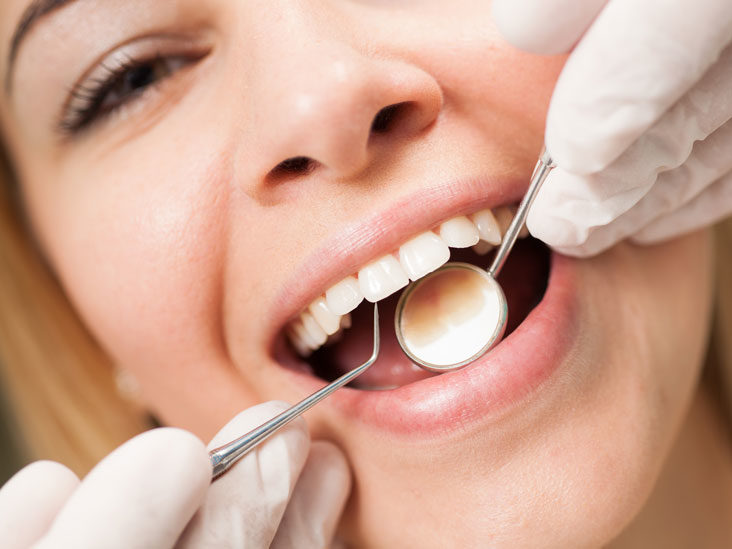Check-up
Dental Examination
Regular dental exams help protect not just your oral health, but also your overall health. For instance, signs and symptoms of some systemic diseases, such as rheumatoid arthritis, lupus and diabetes, might show up in the mouth first.
During a dental exam, the dentist will check for cavities and gum disease. The exam includes evaluating your risk of developing other oral problems and checking your face, neck and mouth for abnormalities including oral cancer. A dental exam might also include dental X-rays (radiographs) or other diagnostic procedures.
Also, the exam gives your dentist a chance to provide tips on caring for your teeth and to detect oral health problems early — when they’re most treatable.
To help you make an educated decision regarding dental examination, here are some of the pros and cons of this procedure:
Request a Consultation
Adults should schedule regular dental exams at intervals determined by a dentist.
During a dental exam, the dentist will:
- Evaluate your overall health and oral hygiene
- Evaluate your risk of tooth decay, root decay, and gum or bone disease
- Evaluate your need for tooth restoration or replacement
- Check your bite and jaw for problems
- Demonstrate proper cleaning techniques for your teeth or dentures
- Assess your need for fluoride
- Possibly take dental X-rays or, if necessary, do other diagnostic procedures
During a dental exam, your dentist will also ask about your health problems or medications you take and discuss how they might affect your oral health. If you have diabetes, for example, you’re at increased risk of gum disease.
Medications that contribute to dry mouth can increase your risk of tooth decay. If arthritis or another condition hampers your ability to brush your teeth, your dentist or hygienist might show you how to insert the handle of your toothbrush into a rubber ball to make gripping easier — or recommend an electric toothbrush.
If you have prosthetic replacements — such as dentures or bridges — your dentist will examine how well they fit and discuss the need for adjustments.
Dental exams might also include advice about diet and other lifestyle factors that can affect oral health.
A dental X-ray allows the dentist to see detailed images of specific sections of your mouth to help diagnose problems not visible during the dental exam. X-rays aren’t typically needed at every dental visit, and your dentist or hygienist will discuss with you the need for X-rays based on your oral health and risk of disease.
Radiation exposure from dental X-rays is very low, especially from digital X-rays that we use in Overton Dental Practice.
Yes, during your dental exam, your dentist will look for signs of oral cancer.
Dentists are experts in keeping gums and teeth healthy. During a check-up they examine your mouth, teeth and gums to spot any problems. Dentist treatment for gum disease can often be the first defence against it and they may recommend a professional clean or scale and polish.
Unlike tooth ache or sensitivity, gum disease often doesn’t cause pain or discomfort, so even if you do spot some of the signs, such as red, swollen, bleeding or receding gums, you might not seek help as fast as you should. But if gum disease is left untreated at the first stage of gingivitis, it can develop into periodontitis, which is much more serious and can lead to tooth loss.
No oral symptom should be ignored – ever! Every oral health symptom is a warning that something abnormal is happening in the oral cavity and, if that warning isn’t heeded, it could lead to something far more serious. The important thing to be aware of here is that what happens in the mouth is not just limited to the teeth and gums – and far too many people aren’t aware of that fact. Because many oral health issues, such as gum disease and infected root canals, can dramatically affect overall health, not to pay attention to the early oral warning signs is to literally put your overall health at risk. So let’s look at some of the more common oral symptoms you should know about.
Your dentist will discuss a date for your next visit depending on how healthy your teeth and gums are and your risk of future problems.



